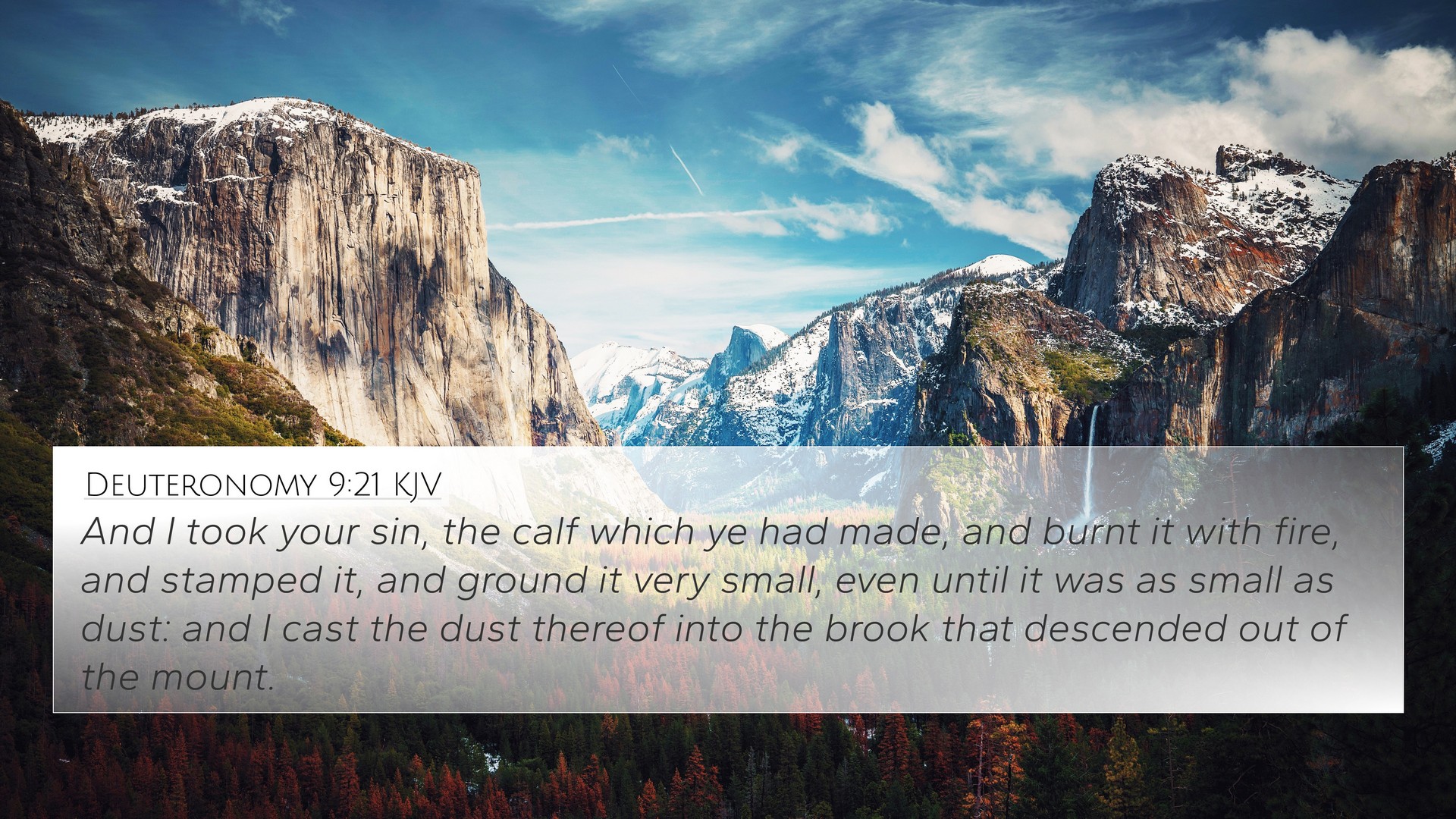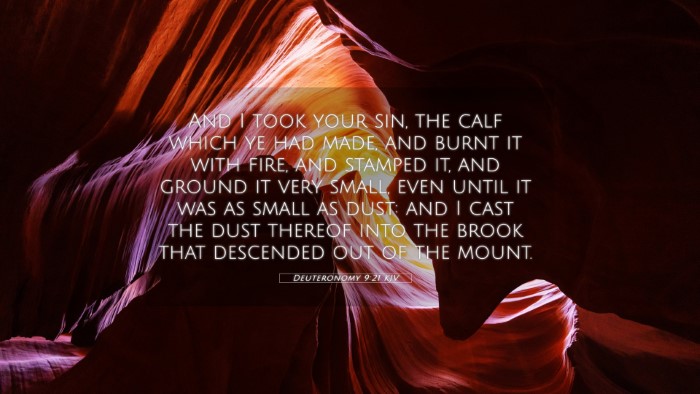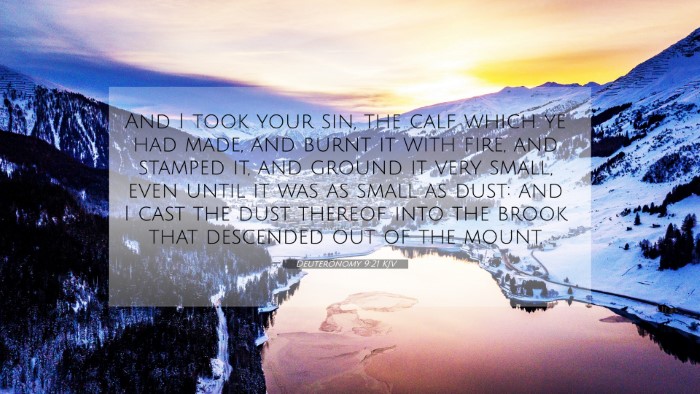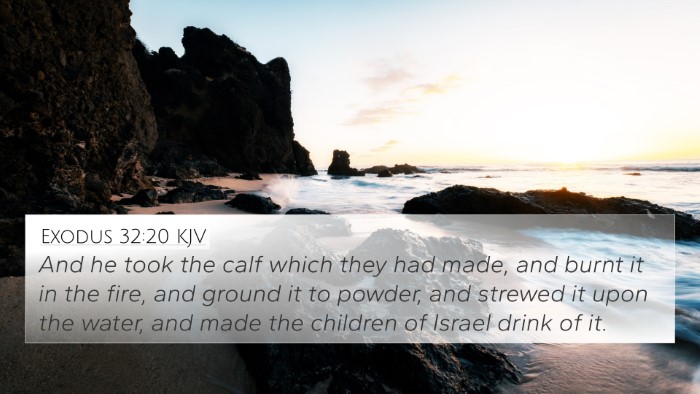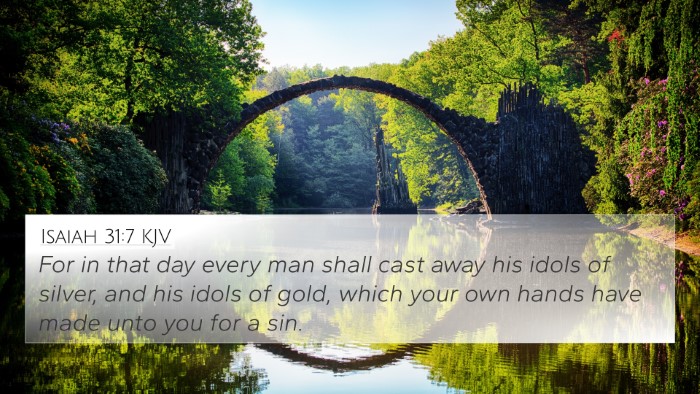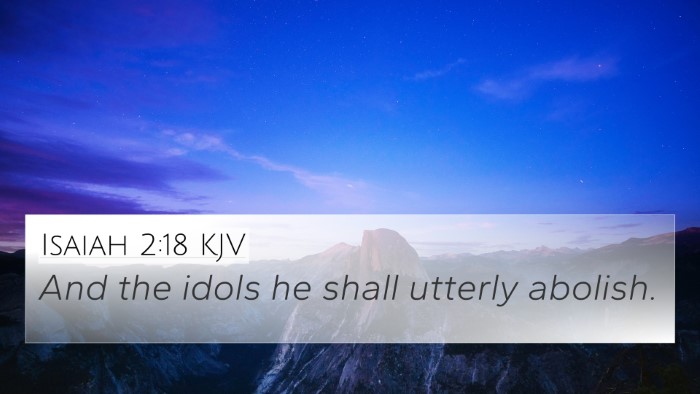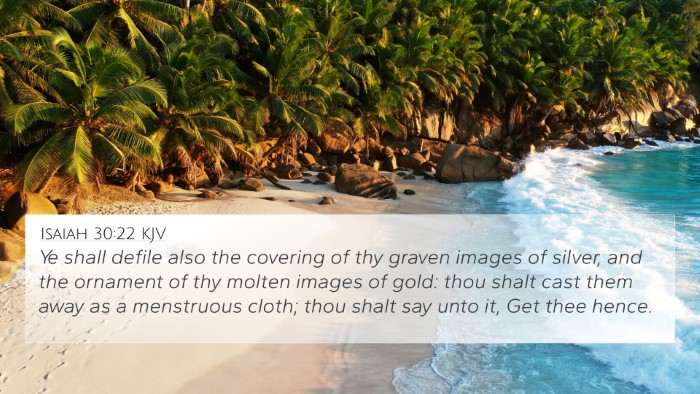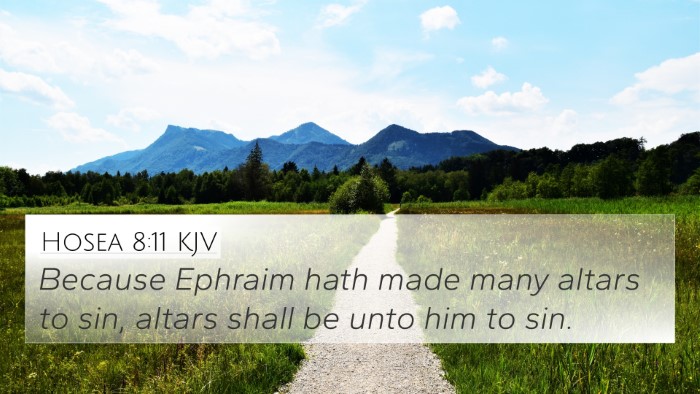Understanding Deuteronomy 9:21 - A Comprehensive Analysis
Bible Verse: Deuteronomy 9:21
Verse (KJV): "And I took your sin, the calf which ye had made, and burnt it with fire, and stamped it, and ground it very small, even until it was as small as dust; and I cast the dust thereof into the brook that descended out of the mount."
Summary of Meaning
This verse from Deuteronomy recounts an essential moment in Israel's history when Moses, in response to the idolatrous sin of the people, takes drastic actions against the golden calf that they had created. This action not only symbolizes the destruction of sin but also highlights God’s disapproval of idolatry, calling the Israelites to repentance and purity.
Insights from Public Domain Commentaries
-
Matthew Henry:
Henry emphasizes the seriousness of idolatry and the gravity of the Israelites' sin, noting that Moses' actions served as a stark warning against turning away from God. He points out that by destroying the golden calf, Moses illustrated the totality of God's judgment against sin. Additionally, Henry discusses the symbolic nature of stamping and grinding the idol until it became dust, indicating that nothing remains of idolatrous practices.
-
Albert Barnes:
Barnes connects this passage to several themes, such as the mercy of God, even in judgment. He explains that Moses’ act of grinding the calf to dust signifies not only the rejection of idols but also a call to the people to recognize their folly. Barnes further explains that the act of casting the dust into the brook symbolizes the complete disposal of their sin, reflecting the theme of cleansing and the opportunity for renewal that God provides.
-
Adam Clarke:
Clarke provides a historical context, noting the preceptive nature of the law that was being taught at this time. He highlights the importance of this moment, linking it to the covenant between God and Israel. Clarke also discusses the broader implications of idolatry within the context of God's relationship with His people, encouraging a return to true worship and loyalty.
Bible Cross-References
This verse correlates with various other scriptures, enhancing understanding through thematic connections:
- Exodus 32:20: Describes Moses breaking the tablets of the covenant in reaction to the people's idolatry.
- Deuteronomy 4:24: The Lord's jealousy in response to idolatry, emphasizing His holiness.
- Jeremiah 10:14: A declaration of the futility of idols, reinforcing the message against idolatry.
- Psalm 115:4-8: Discusses the nature of idols and the folly of worshipping them.
- 1 Corinthians 10:7: Paul references the Israelites’ sin of idolatry as a warning to the Corinthians.
- Galatians 5:20: A mention of idolatry as one of the works of the flesh to avoid.
- Isaiah 44:9-20: A passage that ridicules idol makers and the impotence of idols.
- Romans 1:22-23: Discusses the exchange of the glory of God for images, relevant to the theme of idolatry.
- Revelation 21:8: A warning about the fate of idolaters in the final judgment.
Thematic Connections
This verse encompasses vital themes as follows:
- Idolatry vs. True Worship: The destruction of the calf serves as a profound lesson in loyalty to God.
- Repentance and Forgiveness: A call for the people to turn from their sin, highlighting God’s mercy.
- Judgment and Consequence: Indicating that sin has repercussions, as seen in the actions of Moses.
- Divine Jealousy: Illustrates God's passionate care for His relationship with His people.
Conclusion
In summary, Deuteronomy 9:21 serves as a critical reminder of the nature of sin, the seriousness of idolatry, and the boundless mercy of God. Through cross-references, we can see how this theme resonates throughout the Scriptures, highlighting God’s desire for His people to worship Him in spirit and truth.
Tools for Further Study
For those interested in more in-depth study, consider the following:
- Bible Concordances: Helps in finding verses related to themes like idolatry.
- Bible Cross-Reference Guides: Useful for exploring connections and themes throughout Scripture.
- Online Bible Study Tools: Many resources offer cross-referencing functionality to deepen understanding.
